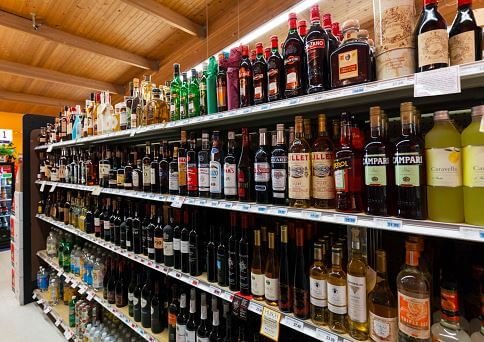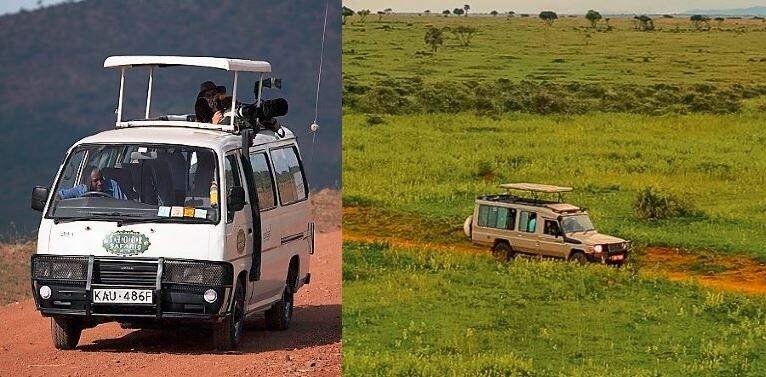Wines & Spirits businesses keep on thriving. Entrepreneurs consider the business lucrative due to the high demand for alcohol in the country and enticing profit margins. A report by NACADA shows that 13 million Kenyans drink liquor daily. The average person spends Ksh. 210 per day. The alcohol industry operates with Kshs 26 billion in one day. In 2021, the business thrived as a result of government rules which reduced operating hours for bars—leading to the establishment of more wines & spirits shops. The fact that wines and spirits are affordable makes it simple to open the shop compared to opening a bar. Also, customers are looking for low-priced alcohol. The following is a guide on how to start a wines and spirits business in Kenya.
Steps to Follow in Starting a Wines & Spirits Business
When you’re starting a business, profit-making is your goal. Therefore, you’ll need to be strategic. Some rules, laws, and policies govern the operations of the company. Follow the following steps if you want to know how to start a wines and spirits business in Kenya.
1. Looking for Capital
To start any business, you’ll need capital. A wines and spirits business requires a budget of Ksh. 200,000 to Ksh. 400,000 for a retail shop. And for a wholesaler, you’ll require approximately KSh. 2 million.
In case of limited finances, start a simple takeaway store as you find ways of expanding the business. If you’ve enough capital, you can set up a more extensive business where customers can sit in as they enjoy their drinks.
The capital is used in paying rent, buying furniture, and license fees. You can borrow a loan if you don’t have the cash.
2. Choosing Business Location
An ideal location will ensure that customers can access your goods efficiently. Select business areas adjacent to main roads, busy urban areas, hotels, and restaurants. The business will be visible to potential customers. High traffic will provide an increased flow of customers.
Check on the competition in the preferred area. High competition isn’t good for a startup. Remember that you’ll be selling products other businesses offer.
Choose a premise whose rent is affordable. A rent of above Kshs 20,000 might abhor your operations and lead to losses. Especially for wines and spirits stores.
When starting with low capital, a 10 by 10 square feet stall can serve you.
Avoid setting your store near schools and churches because it’s illegal. Also, the security of your clients and shop is necessary. Choose a secure place.
Check Out: How to Easily Find Capital to Start a Business in Kenya
3. Analyzing Competition
Mainly competition in urban areas is high; thus, your strategy should be on point to succeed.
Scan the liquor prices by other stores and wholesale prices to gauge the profit margins. Can the margins sustain your business? Knowing prices will help you in setting realistic and appealing prices.
Healthy competition should allow you to set prices and make a profit.
To remain competitive, track market trends closely and adjust if necessary. Price changes, new liquor brands, and a new store nearby will all affect your business.
4. Understanding Your Target Customers
Customers have different preferences, tastes, and economic status. Status determines the types of alcohol you’ll sell. For instance, low-end customers buy cheap liquor like kibao and chrome. Also, they purchase alcohol in small amounts like “nusu”. On the flip side, high-end clients will even buy whisky.
Look at customer behavior to know the type of store to set up. Do they prefer leisure outside their houses or home? If they like drinking at home, a takeaway store will work.
Some clients prefer good packaging while others like being served by a lively attendant and good music. If you treat them well, retaining them will be easy. Plus, they will bring their friends later.
5. Getting Essential Legal Documents
Getting legal documents is a vital part of starting a wines & spirits business. They include;
Registering Business Name
Nowadays, registering a business name is simple. You can do it online. In October 2017, manual registration ceased.
Tips to register are;
- Log in to an eCitizen account. In case you don’t have one, open a new eCitizen account. You’ll require an email address and national ID.
- The application fee for a name is Kshs 150; you can apply for a maximum of 3 names on a single order. If the name used succeeds, you’d get a reservation in three days.
- You’ll receive the name details through email or eCitizen account.
Registering Business
The registration can be done online or at a nearby Huduma center. Fees charged are Kshs 11,000 for a limited company, Kshs 850 for a sole proprietor, and Kshs 2,500 for a partnership business.
The first step involves filling out application forms and sending them to Business Registration Services offices or Huduma Center.
Approval and processing take two to three weeks, and the business documents will be sent to you.
Getting Business KRA Pin Number
You can apply for the PIN online through the itax portal. The procedure involves;
- Taxpayer registration. You require the director(s) national ID and individual KRA pin.
- Follow outlined steps to apply for a company pin certificate.
- Send your pin certificate acknowledgment receipt.
- Lastly, you’ll obtain the business pin certificate.
Getting Liquor License
A wines & spirits shop can’t operate without a liquor license. The cost of acquiring it depends on the area of operation. In Nairobi, the application fee is Kshs 6,000, and the one-year price is Kshs 50,000. The license is renewed annually.
Also, costs depend on the size of the business. A retail business pays approximately Kshs 24,000, wholesale store Kshs 50,000, and brewers license KShs 100,000.
A wholesale license will allow you to operate your business daily—no 5 pm to 11 pm time restrictions on weekdays. A brewers license applies to companies producing individual alcohol brands to sell.
You apply at liquor licensing board offices in your county.
Acquiring County License
You apply for a business permit at county council offices. The council officers may visit your business premises to ensure the location meets requirements. The area and size of the business determine the amount you’ll pay.
Mostly it ranges between Kshs 3,500 to Kshs 10,000.
After paying the required amount, the council officers will give you a receipt. The business permit certificate will be out in one week. It’s renewed every year.
Other Licenses
The table below shows other licenses and their approximate costs
| License | Approximate Cost |
| Health Certificate | Kshs 1,000 |
| NEMA Approval | KShs 3,000 |
| MSCK License | KShs 3,000 |
| Food & Hygiene | KShs 7,000 |
| Fire & Safety | KShs 4,500 |
It’s worth noting that the prices vary from one county and town to another.
Nairobi City County set up a Unified Business Certificate costing Kshs 26,500 to cater for a typical fully-fledged wines & spirits shop in the CBD. The amount covers health permits, advertising signage, and fire clearance fees.
6.Identifying a Supplier
Identifying a reliable supplier will help avoid running out of inventory and getting low-quality products. Be wise in searching for suppliers. You can befriend wine & spirits employees to get contacts of their suppliers.
With contacts of suppliers, you can call them to arrange the appropriate delivery time and modes of payment.
The supplier should be able to satisfy your customers’ demands. The only way to keep clients coming back is by selling everything they need. Stock well based on target customers.
7. Furnishing Business Premises
First, clean the business room. Fix shelves, chairs, and tables. Remember, if you furnish the premises well, you’ll attract more customers.
Ensure that customers have a great view of all alcohol brands you’re selling.
If you’re starting a small, simple shop, a counter and stools are enough.
8. Bringing Stock
You can bring stock worth between KShs 50,000 to KShs 200,000 for a retail shop. In the case of wholesale, you require KShs 500,000 inventory.
Before you bring stock, you need to get an employee beforehand. A candidate with prior experience running a wines and spirits shop will be a good fit. Also, check on the customer care abilities of the candidate. A friendly person will retain customers.
Keep miscellaneous costs between Kshs 50,000 to Kshs 100,000 after stocking your business.
As you open and run a wines & spirits shop, keep note of the following don’ts;
- Don’t open the store before time
- Don’t sell alcohol to children below 18yrs
- Renew license as expected
- Don’t sell fake alcohol; ensure liquors are certified by KEBS
If you don’t follow the rules, you’ll land on the wrong side of law enforcers, and you risk your business getting closed or fined.
The growth of Wines & Spirits businesses in Kenya is evident. The major causes of the development include; affordability of the drinks, high demand, and good profit margins.
Based on this guide on how to start a wines and spirits business in Kenya, rules and regulations govern the operations of the business. You’ll require several legal documents to run the business.
Steps to follow while starting the venture include; choosing a suitable location, analyzing competition, and selecting suppliers.
Start the shop by following all the rules and regulations to avoid unnecessary fines.







